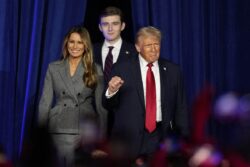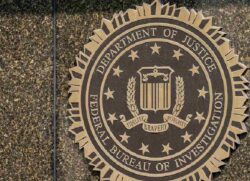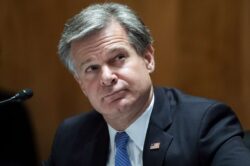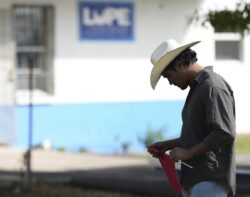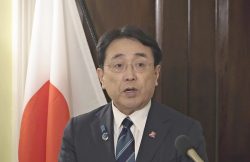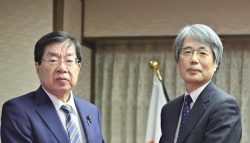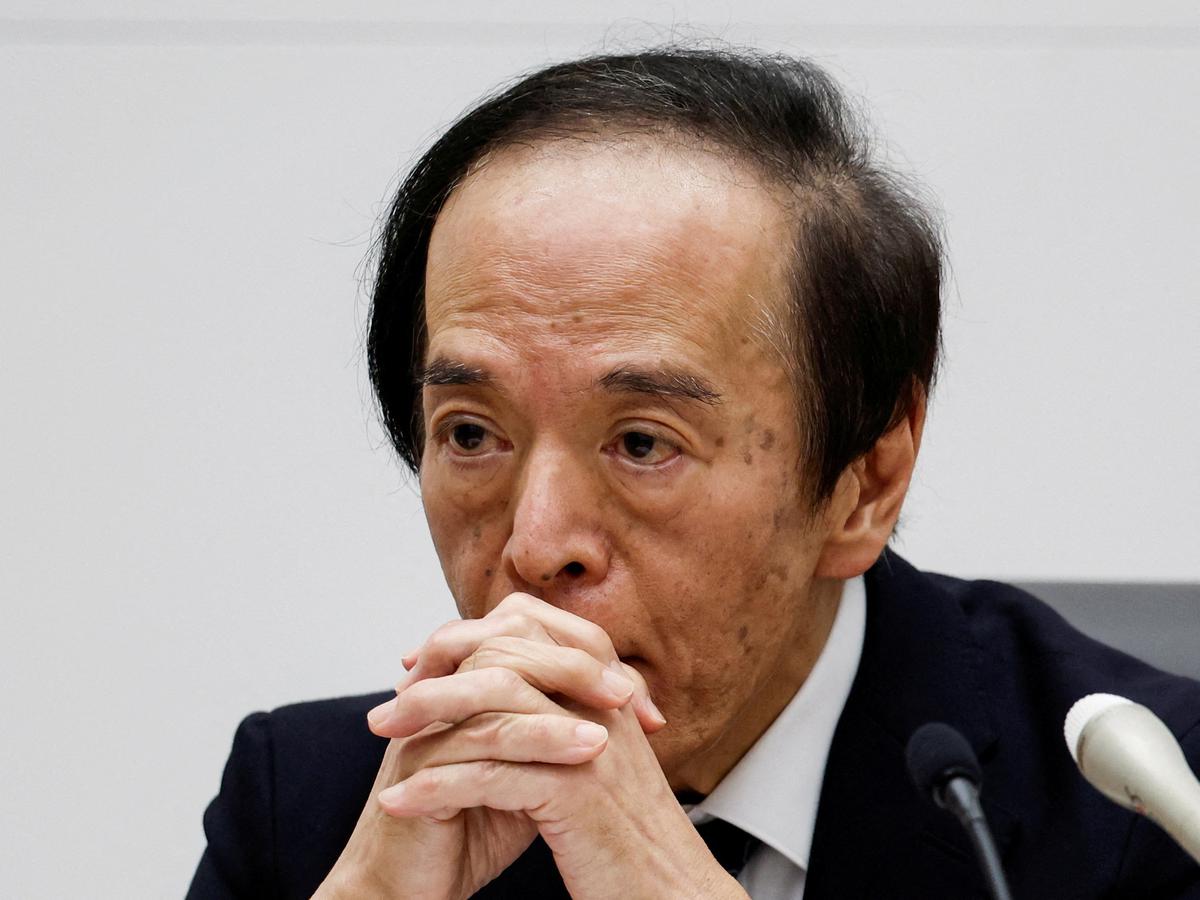
Bank of Japan Governor Kazuo Ueda attends a press conference after its policy meeting in Tokyo, Japan, October 31, 2024.
17:35 JST, November 7, 2024
TOKYO (Reuters) – A dollar rally triggered by Republican Donald Trump’s victory in the U.S. presidential election could heighten pressure on the Bank of Japan to raise interest rates as soon as December to prevent the yen from sliding back toward three-decade lows.
Trump’s victory in the U.S. presidential election unleashed sharp dollar gains, as expectations of tax cuts and tariffs on imports drove optimism about economic growth while fueling worries about inflation.
The greenback’s strength briefly pushed the yen to a three-month low of 154.71 on Thursday, well off a high of 140.62 hit in mid-September.
While a weak yen gives exports a boost, it has become a headache for Japanese policymakers by pushing up fuel and food import costs and in turn hurting consumption.
Rising inflation was widely seen as one of the factors behind the massive voter swing against the ruling coalition at last month’s general election.
Japan’s top currency diplomat Atsushi Mimura escalated his warning against sharp yen falls on Thursday, saying authorities were ready to act against “excessive” currency moves.
One nightmare scenario for policymakers would be a renewed plunge in the yen towards the three-decade trough near 162 to the dollar hit in July – a move that prodded the BOJ to raise interest rates to 0.25% on July 31.
Back then, the tumbling yen led to calls from ruling party lawmakers for the BOJ to hike rates, or send clearer signs of its intention to push up borrowing costs.
Prime Minister Shigeru Ishiba stunned markets on Oct. 2 by saying the economy was not ready for further rate hikes, though he later toned down his message to say he would not intervene in BOJ policy.
“Politicians don’t want a weak yen, so even those who have urged the BOJ to be cautious about raising rates could nod to hikes if yen falls accelerate,” said Tsuyoshi Ueno, senior economist at NLI Research Institute. “In that sense, the weak yen could prod the BOJ into steady rate hikes.”
HAND-IN-HAND
The BOJ exited a decade-long radical stimulus in March and raised short-term interest rates to 0.25% in July on the view Japan was making progress towards sustainably achieving its 2% inflation target.
While many analysts expect the BOJ to hike rates again by March, they are divided on whether it would act in December – or wait until January or March to gauge more data.
The BOJ kept interest rates steady last month but removed language warning of the need to focus on external risks, leaving open the chance of a near-term hike.
Renewed yen falls may heighten the chance of the BOJ acting in December, given the BOJ’s sensitivity to the currency’s weakness that pushes up import costs, analysts say.
Expectations of a near-term rate hike by the BOJ, coupled with rising U.S. Treasury yields, pushed the benchmark 10-year Japanese government bond (JGB) yield above 1% for the first time in more than three months on Thursday.
“The BOJ hasn’t said so clearly but its rate hike in July was likely driven in part by its concern over excessive yen falls,” said Shinichiro Kobayashi, principal economist at Mitsubishi UFJ Research and Consulting.
“If the yen heads toward 160 to the dollar again, the chance of a rate hike by year-end will increase,” he said.
Tomoyuki Ota, chief economist at Mizuho Research & Technologies, also sees 160-to-the-dollar as authorities’ line in the sand that heightens the chance of a BOJ rate hike – and currency intervention by the government to prop up the yen.
In the previous battle with yen falls, the government and the BOJ appeared to work hand-in-hand.
Japanese authorities spent ¥5.53 trillion ($35.8 billion) intervening in the foreign exchange market in July to pull the yen off 38-year lows near 162 to the dollar. That month, the BOJ hiked rates and stressed its resolve to keep pushing up borrowing costs.
BOJ Governor Kazuo Ueda’s hawkish hints of near-term rate hikes at last month’s policy meeting pushed the dollar down toward ¥150 .
“There’s no doubt the market’s direction is towards a weaker yen. If yen falls accelerate, the chance of a December rate hike will increase,” said Ota of Mizuho Research. “The government and the BOJ will likely act swiftly including through currency intervention.”
$1 = ¥154.4400
Top Articles in World
-

Israeli Ambassador to Japan Speaks about Japan’s Role in the Reconstruction of Gaza
-

China Eyes Rare Earth Foothold in Malaysia to Maintain Dominance, Counter Japan, U.S.
-

North Korea Possibly Launches Ballistic Missile
-

Chinese Embassy in Japan Reiterates Call for Chinese People to Refrain from Traveling to Japan; Call Comes in Wake of ¥400 Mil. Robbery
-

Pentagon Foresees ‘More Limited’ Role in Deterring North Korea
JN ACCESS RANKING
-

Japan Institute to Use Domestic Commercial Optical Lattice Clock to Set Japan Standard Time
-

Israeli Ambassador to Japan Speaks about Japan’s Role in the Reconstruction of Gaza
-

Man Infected with Measles May Have Come in Contact with Many People in Tokyo, Went to Store, Restaurant Around When Symptoms Emerged
-

China Eyes Rare Earth Foothold in Malaysia to Maintain Dominance, Counter Japan, U.S.
-

Australian Woman Dies After Mishap on Ski Lift in Nagano Prefecture


